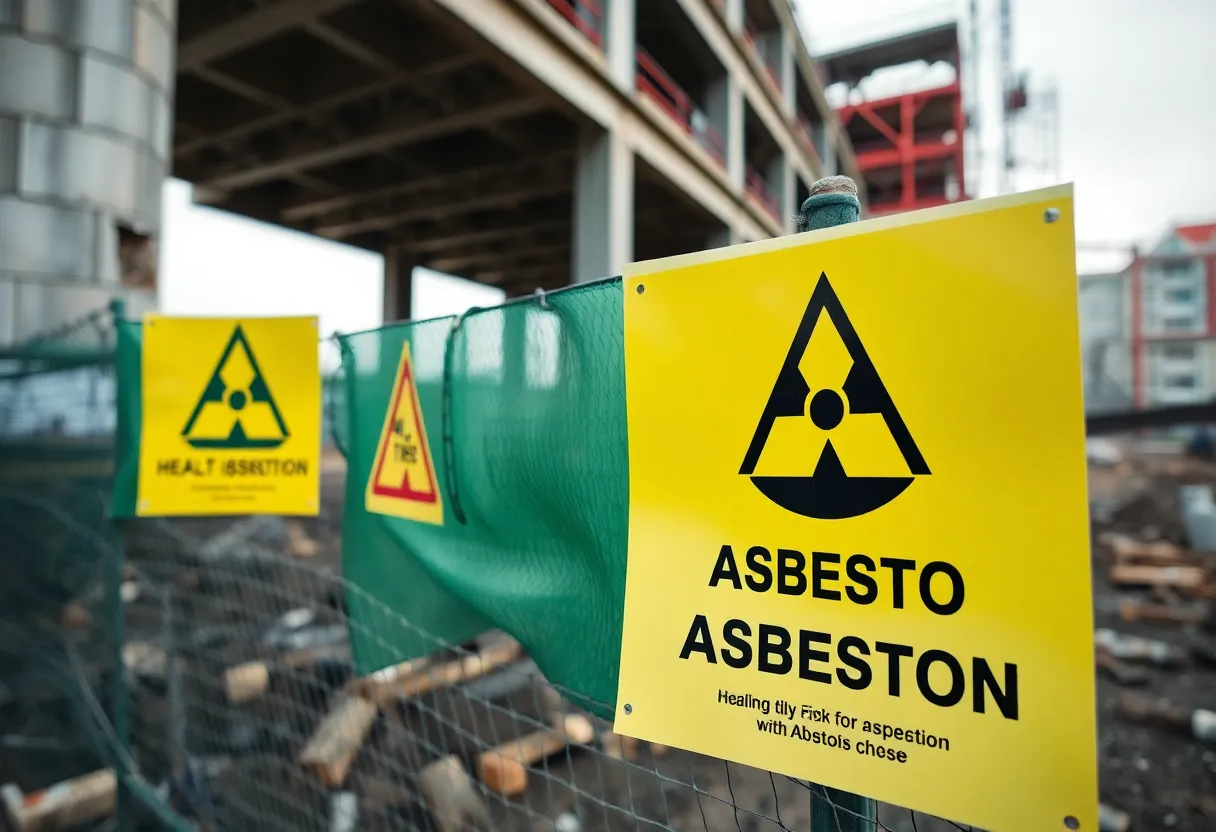News Summary
The EPA announces a 30-month review of the chrysotile asbestos ban, raising concerns among health advocates about public safety and industry interests.
Shockwaves as EPA Plans to Reconsider Asbestos Ban
The Environmental Protection Agency (EPA) has announced its intentions to *reconsider the Biden administration’s ban on chrysotile asbestos*, a move that has stirred considerable concern amidst ongoing debates about public health and safety. For years, asbestos has been linked to *tens of thousands of deaths* annually, with its role as a major contributor to *mesothelioma and other cancers* well-documented. Now, this reconsideration raises alarm bells for health advocates dedicated to combating this notorious carcinogen.
The Background on Asbestos Use in the U.S.
Chrysotile asbestos, the last type still utilized in the United States, was gradually phased out, and this ban represented significant progress in a long-standing conflict surrounding the material’s hazards. The Biden administration’s prohibition was hailed as a *milestone in cancer prevention* and a critical step towards safeguarding the public from the devastating consequences of asbestos exposure. However, the recent announcement by the EPA suggests that the agency may lean in favor of industry interests, causing *distress among advocacy groups* advocating for stricter protections.
Looking Ahead: A Comprehensive Review
The EPA plans a thorough 30-month review of the chrysotile asbestos ban. Officials will evaluate whether certain components of the ban exceed the requirements outlined in the *Toxic Substances Control Act*. This includes an analysis of whether the measures imposed by the ban effectively address *unreasonable risks* associated with asbestos or if alternative approaches, such as *permanent workplace protections*, could suffice. Given asbestos’s diverse applications in products ranging from *brake blocks and diaphragms to gaskets*, this review could have a profound impact on a wide array of industries.
Analysis of Criticism and Support
Critics of the reconsideration are voicing their concerns, arguing that this shift signifies a potential weakening of essential protections against one of the most dangerous substances known to humanity. Observers are particularly worried about the leadership of EPA Administrator Lee Zeldin, who has been linked to various deregulatory measures since his association with the Trump administration. Moreover, *Lynn Ann Dekleva*, a senior official at the EPA, has historical ties with *the American Chemistry Council*, an organization that actively opposed the ban in court.
Supporters of the EPA’s reconsideration highlight its potential to adopt a more *risk-based regulatory approach*, which aligns with scientific consensus. The American Chemistry Council’s endorsement of the EPA’s actions suggests a push for regulation that can balance public health with industry capabilities. Nevertheless, this stance has sparked fierce backlash from advocates who demand robust protections against a known cancer risk.
Looking at Historical Context
This reconsideration of the chrysotile asbestos ban appears to echo prior EPA decisions that favored industry interests over public health initiatives. While the Biden administration achieved notable victories in regulating harmful substances—including a ban on *trichloroethylene (TCE)* and *per- and polyfluoroalkyl substances (PFAS)*—the current situation indicates potential vulnerabilities in ongoing regulatory processes.
The EPA has faced criticism regarding its slow approval processes for new chemicals, which some argue hampered opportunities for innovation within the field. Advocates warn that re-evaluating the chrysotile ban puts countless individuals at risk of exposure and elevates the number of *asbestos-related diseases* for years to come.
Conclusion: A Pivotal Moment for Public Health
As the EPA embarks on its 30-month review, the nation watches closely. The outcome of this reconsideration could influence regulatory approaches toward asbestos and similar hazardous materials for years to come. With thousands of lives hanging in the balance, will the agency prioritize public health, or will it bend to the will of powerful industry interests? The question remains, and advocates are poised for any developments as this critical situation unfolds.
Deeper Dive: News & Info About This Topic
HERE Resources
The Dark Legacy of Asbestos Exposure Among Veterans: A Continual Struggle
The Truth Behind BAP1 Mutations and Mesothelioma: Clearing Up Misconceptions
Los Angeles Wildfires: A Hidden Danger of Asbestos Contamination Looms Over Cleanup Efforts
Libby Asbestos Clinic in Crisis: Federal Court Hearing Sparks Controversy
The Lingering Danger of Asbestos: A Call for Action
Clinic Closure Leaves Libby Residents in the Lurch
The Looming Danger: Asbestos Regulations in Jeopardy
Potential Asbestos Ban Under Review as Health Risks Persist
EPA Seeks Pause in Asbestos Regulation Litigation Amid Industry Concerns
School District of Philadelphia Faces Federal Charges Over Asbestos Violations



















